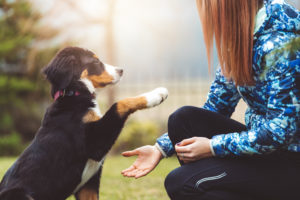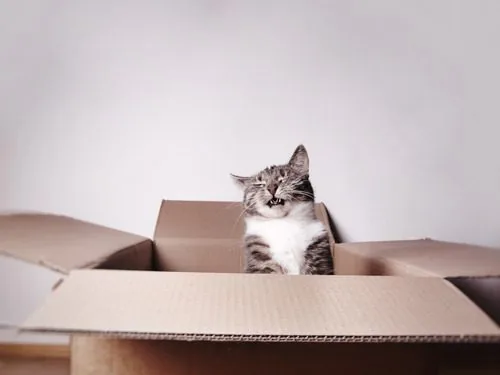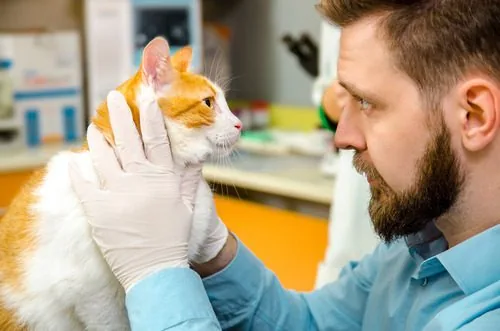6 Puppy Training Tips in Plymouth Meeting, PA
If you’re thinking of bringing home a new puppy in Plymouth Meeting or you have just adopted a new furry family member, you may be panicking a little bit. After all, how are you supposed to train a puppy? Is it really as easy as some people make it seem?

In the article below, you’ll find six tips to help you learn more about how to properly train your new puppy. With this information, you can get started working toward building great behavior in your dog before she reaches her first birthday.
Start with Potty Training
Potty training should be the first and foremost puppy training on your mind. Once you have your dog potty trained, you can work on the other areas you want to focus on when it comes to her training.
Potty training requires you to be dedicated to the training process for the first couple of weeks. You may need to take your dog outdoors every one to two hours at first. When she goes potty in the right place outside, give her a treat and a lot of praise. She will get the idea pretty quickly from there!
Don’t Neglect Crate Training
Crate training may go hand-in-hand with potty training, and if you do both at the same time, you’re likely to see better results for both of them. If you crate train your dog from the puppy stage, you will be able to put her in her crate any time you need to, and she will settle down and go to sleep when she is crated.
Here are some tips to keep in mind when crate training your puppy:
- Make sure to find the best crate that fits your dog (in shape and size)
- Think about ways to make sure your pet is comfortable (placing a towel at the bottom of the crate or putting in pet bed)
- Reward them for going into the crate as positive reinforcement
- Slowly increase the amount of time they’re in the crate at one time, don’t start with having them in there for hours
- Be patient, as this kind of training can take time
It’s crucial to never use crating as a punishment. Your puppy should feel comfortable going into her crate and should look at it as her personal safe space within your home. Punishing her with the crate will not allow this to happen.
Always Use Positive Reinforcement
Negative reinforcement and punishing your puppy almost never work—and in extreme situations, it can be cruel. By focusing on positive reinforcement, you’re building a bond of trust and learning to interact better with your dog at the same time. Positive reinforcement is proven to help dogs learn more quickly than negative reinforcement, too.
Invest in some puppy training treats before adopting your new dog in Plymouth Meeting. You can use these treats to reward your puppy every time she does something right. She will quickly associate the correct behavior with the training treats and will want to earn her treats again and again.
Redirect Teething Behaviors
When puppies begin teething, they start chewing on everything they can find. They may chew on shoes, cords, clothing, furniture, and hands! This behavior is not something you want your puppy to learn and continue to do after the teething stage has finished, so it’s important to work on redirecting her when she starts to chew.
Give your dog a puppy-friendly teething toy or chew treat when she begins biting and chewing. You may also want to give her a Kong toy that is filled with peanut butter or wet puppy food to distract her for a while and soothe her teething pain at the same time.
Begin Obedience Early
Obedience training can’t start too soon. Once your puppy has learned potty training, you will need to start working with her on obedience training too. You can begin with the basics, such as “sit,” “stay,” and “come,” and then work up from there.
Some dogs in Plymouth Meeting are more eager to please than others, but all dogs have the capacity to learn obedience skills. You should, at the very least, teach your dog the basic skills so you can have some control in situations that require you to be in charge.
Exercise Often
Finally, make sure to exercise your dog often. When your dog is still a puppy, she will have a lot of energy that needs to be burned off. You will see a significant reduction in the number of behavioral problems your dog displays if you take time to exercise and play with her every day.
Exercise and playtime can include some training as well, but it shouldn’t be all about training. Your puppy should also be allowed to have fun and should bond with you and the rest of your household through playtime too.
Talk with a Vet for More Tips on Puppy Training in Plymouth Meeting, PA
When training a puppy, it’s easy to get overwhelmed and frustrated. Remember that the puppy stage isn’t going to last forever, and if you can tough it out for the first several months, you will come out the other side with a well-behaved adult dog.
If you feel like you can’t handle the puppy training experience, there’s no shame in working with a professional trainer. Research quality trainers in your area to find out more. If you want help on finding a trainer for your puppy, you can also talk with a veterinarian in Plymouth Meeting, PA.
At The Village Vets in Plymouth Meeting, our team is more than happy to assist you in finding a professional trainer for your dog. We want your puppy to live a happy and healthy life with you, both wellness and behavior wise. We’re happy to be your partner in caring for your puppy throughout all stages of life, so always feel free to contact us for advice on the health and behavior wellbeing of your pet.
Recent Posts
About Veterinary Village
Veterinary Village offers excellent service to clients in a comfortable, friendly atmosphere. To learn more about us and how we can better serve you and your pet here in Plymouth Meeting, PA, click the button below.
Share This Post
Recent Posts
About Veterinary Village
Veterinary Village is a network of three animal hospitals based in Atlanta, GA and the surrounding area. We offer honest, excellent service to our clients in a comfortable, friendly atmosphere. To learn more about our locations and how we can better serve you and your pet, click the button below.



